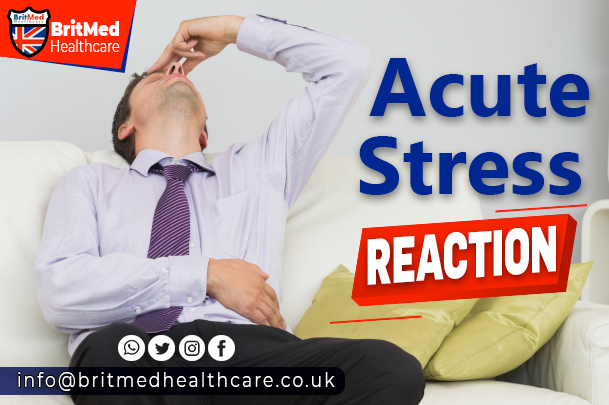Understanding Acute Stress Reaction: A Guide to Recognizing the Signs and Symptoms
Acute Stress Reaction (ASR) is a common response to a traumatic or life-threatening event. It’s a natural and temporary response to a situation that is perceived as a threat to one’s safety or well-being. In this article, we’ll delve into the signs and symptoms of ASR, as well as provide guidance on how to manage and recover from this experience.
What is Acute Stress Reaction?
Acute Stress Reaction is a condition that occurs when an individual experiences a sudden and intense threat to their life or well-being. This can be triggered by a wide range of events, including natural disasters, accidents, violent attacks, or even being in a life-threatening situation. When an individual experiences ASR, their body’s “fight or flight” response is activated, releasing stress hormones such as adrenaline and cortisol.
Signs and Symptoms of Acute Stress Reaction
The symptoms of ASR can vary from person to person, but common signs include:
– Feeling overwhelmed, panicked, or disoriented
– Increased heart rate and blood pressure
– Trembling or shaking
– Nausea or stomach discomfort
– Difficulty concentrating or making decisions
– Feeling numb or disconnected from the environment
– Hypervigilance or exaggerated startle response
– Difficulty sleeping or experiencing vivid nightmares
How to Manage Acute Stress Reaction
While ASR is a normal response to a traumatic event, it’s essential to manage the symptoms effectively to prevent long-term effects. Here are some tips on how to cope with ASR:
Stay calm and try to breathe deeply: Take slow, deep breaths in through your nose and out through your mouth to help calm your body and mind.
– Seek support: Talk to a trusted friend, family member, or mental health professional about your experience.
– Practice relaxation techniques: Engage in activities that help you relax, such as yoga, meditation, or progressive muscle relaxation.
– Avoid self-medication: Refrain from using drugs or alcohol to cope with stress, as this can exacerbate symptoms.
– Seek professional help: If symptoms persist or worsen over time, consider seeking professional help from a mental health expert.
Long-Term Effects of Acute Stress Reaction
If left unmanaged, ASR can lead to long-term effects on an individual’s mental health. These may include:
– Post-Traumatic Stress Disorder (PTSD)
– Anxiety disorders
– Depression
– Substance abuse
– Sleep disorders
Conclusion
Acute Stress Reaction is a common and normal response to traumatic events. By understanding the signs and symptoms of ASR and implementing effective coping strategies, individuals can recover from this experience and reduce the risk of long-term mental health issues. If you’re experiencing symptoms of ASR or have concerns about your mental health, don’t hesitate to seek support from a trusted healthcare professional.
References:
https://www.urgentcarebne.com.au/services/work-cover/psychological-injuries/acute-stress-reaction/
https://my.clevelandclinic.org/health/diseases/24755-acute-stress-disorder
https://patient.info/mental-health/stress-management/acute-stress-reaction
Websites:
Britmed Healthcare: https://britmedhealthcare.co.uk/
Nightingale Hospital: https://www.nightingalehospital.co.uk/
Top Doctors: https://www.topdoctors.co.uk/doctor/ahmed-el-missiry
You can also book, Contact us on WhatsApp 08009708017




